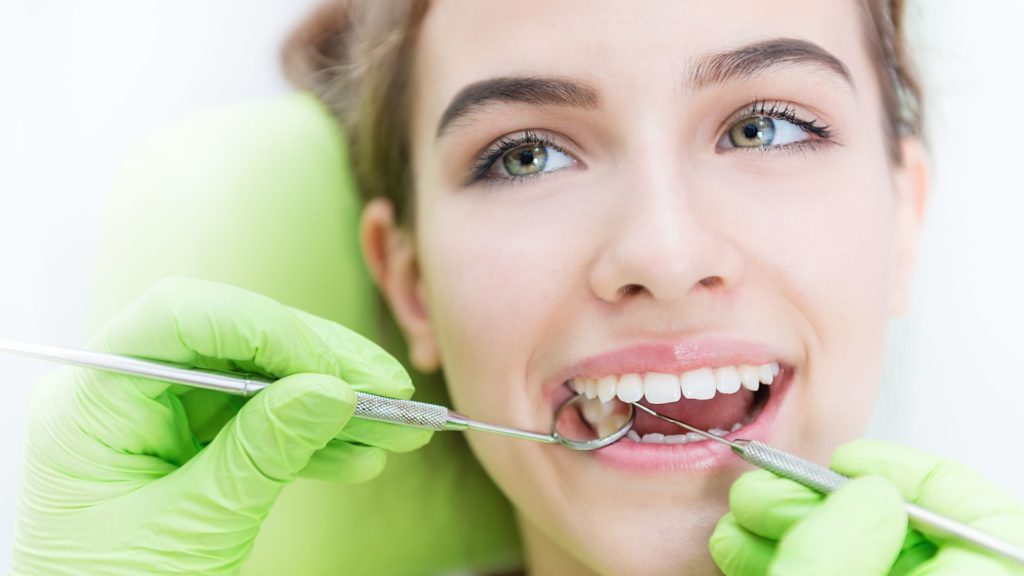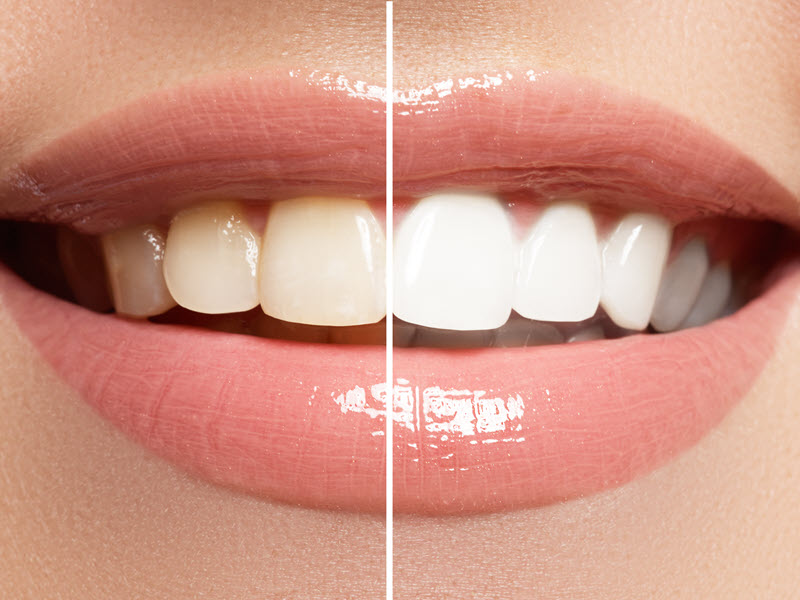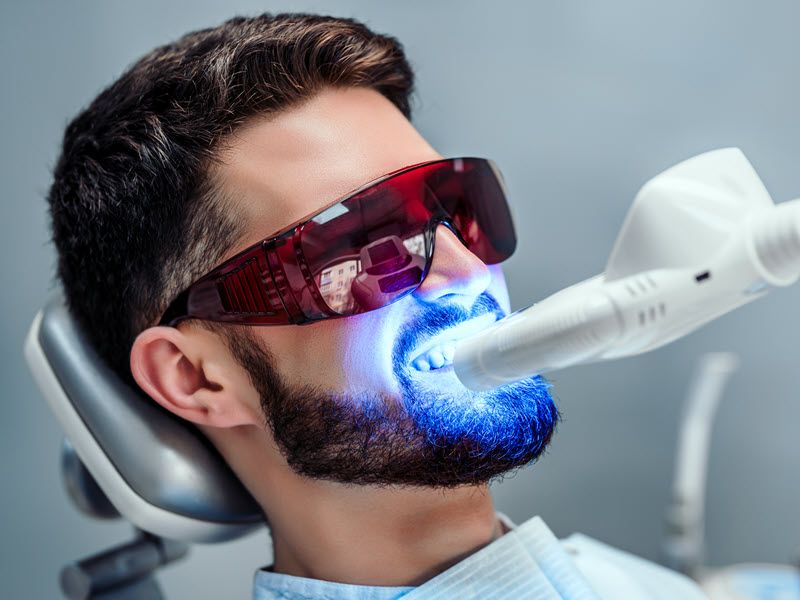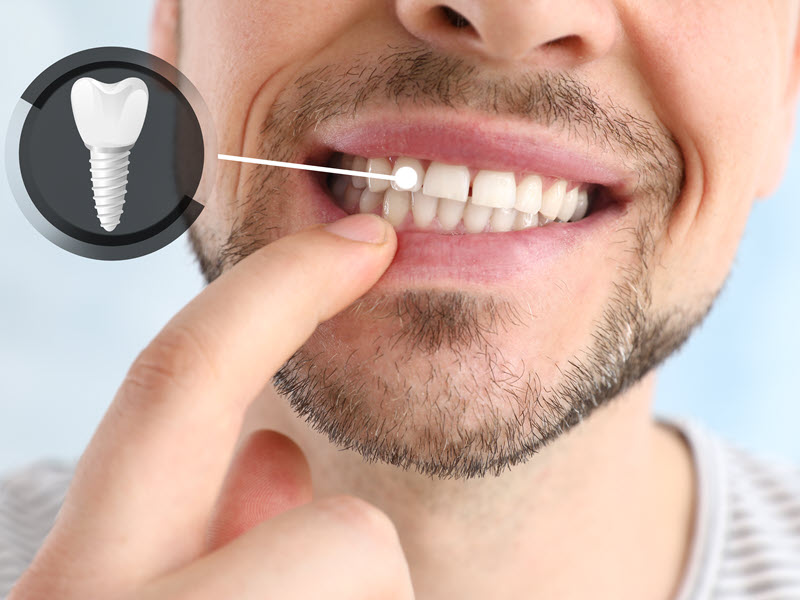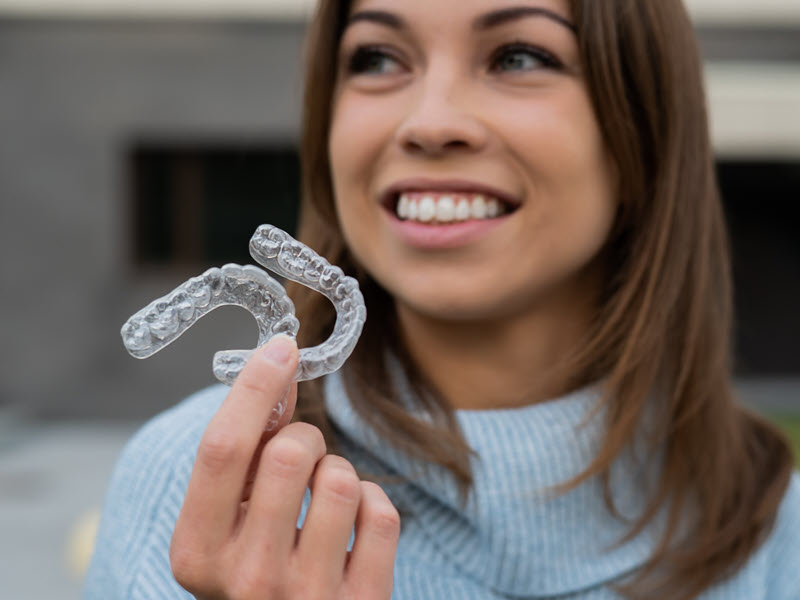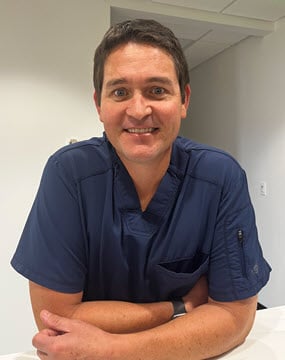Definition of a Dental Emergency
The American Dental Association (ADA) characterizes dental emergencies as conditions that need urgent intervention to stop bleeding, alleviate severe pain, or treat infections that could become life-threatening. However, not all dental emergencies pose a danger to life, but they still demand quick action to prevent further damage to teeth, jaw, or other oral structures.
Common dental emergencies can result from trauma, accidents, underlying health conditions, or infections. These critical situations cause immense discomfort, make it difficult to eat or sleep, and can potentially affect long-term oral health. Patients experiencing such emergencies should promptly seek dental care to minimize damage and alleviate pain.
Properly identifying a dental emergency and taking the necessary steps ensures effective treatment and the prevention of potential complications. Timely care is crucial to safeguarding both oral health and overall well-being in emergency situations.
Common Types of Dental Emergencies
Below, we cover the most common types of dental emergencies that dentists encounter.
Broken Tooth
A broken tooth is not always a dental emergency. However, it requires immediate attention if the person experiences severe pain or bleeding. An individual should contact a dentist as soon as possible after the incident. Assessing the damage is crucial, as it can range from a partial chip to a full breakage.
When the tooth is completely broken, uncontrolled bleeding might occur. This situation can become life-threatening and requires immediate treatment. In such cases, seeking emergency care is essential to alleviate severe pain and prevent further complications.
If a tooth is only partially chipped, the person might not experience severe pain. It is still vital to visit a dentist as soon as possible to assess the tooth’s condition and avoid potential issues in the future. The dentist can provide appropriate treatment to alleviate discomfort and prevent further damage to the tooth. 
In most cases, especially with bleeding and pain, a broken tooth is a dental emergency that should be addressed immediately. In some cases the tooth can be preserved if you act quickly.
Severe Toothache Pain
A severe toothache can be a sign of a dental emergency. Causes of tooth pain include decay, infection, or injury to the tooth. If it’s difficult to eat, sleep or focus, seeking prompt treatment is essential to avoid further complications.
In some cases, pain can stem from a dental abscess. An abscess is a localized infection caused by bacteria, which leads to pus formation. Immediate attention from a dentist is crucial as a dental abscess can cause serious health issues if left untreated.
Broken or fractured teeth are another reason for severe toothache. Chewing with a damaged tooth can exacerbate the pain and may result in irreparable harm to the tooth or the supporting structures. A dentist should evaluate any broken or fractured tooth as soon as possible to determine the necessary course of action.
Toothache pain can also be a symptom of an impacted wisdom tooth. When a wisdom tooth fails to fully emerge, it can cause pain, swelling, and infection. Seeking a dentist’s help in such cases can prevent further problems and relieve discomfort.
Food or Object Stuck in Teeth
At times, a piece of food or a tiny object may get lodged between your teeth. This issue may cause discomfort or irritation in the affected area. It is essential to address such cases promptly, but they are not always considered dental emergencies.
To remove the stuck food or object, try flossing or brushing your teeth first to resolve the situation on your own. In cases where flossing or brushing does not work, a toothpick might help. However, be gentle when using a toothpick to avoid damaging your teeth or gums.
If the issue persists and you’re unable to dislodge the object, consult your dentist as soon as possible to avoid complications. While it may not always be a dental emergency, seeking professional help can prevent potential issues, like infections or damaged teeth.
Persistent Bad Breath or Taste
Bad breath, medically called halitosis, can be embarrassing and affect one’s confidence. In some cases, persistent bad breath may signal the need for emergency dental care. Many causes of bad breath are easily treatable, but persistent issues warrant a visit to your dentist.
Gum disease is one common cause of bad breath. When ignored, it can lead to tooth loss and more serious oral health issues. Regular dental check-ups help detect gum problems early. In cases of severe pain, swelling, or bleeding, seeking immediate dental assistance is crucial.
Tooth decay is another reason behind persistent bad breath. Bacteria that thrive in the mouth secrete acids that erode teeth, causing a foul smell. Left untreated, tooth decay progresses and may cause significant damage. An emergency dental visit is essential for severe pain or sensitivity.
Infections, such as oral abscesses, can result in bad breath if not addressed promptly. Symptoms like swelling, pain, and pus require urgent dental intervention. Depending on the severity, your dentist may prescribe antibiotics or perform procedures to treat the infection.
Gum or Tooth Discoloration
Gum and tooth discoloration may not always qualify as a dental emergency. However, they might signal an underlying issue that requires prompt attention. Discoloration can originate from various causes, including poor oral hygiene, tooth decay, or gum disease.
Tooth decay occurs when harmful bacteria in the mouth produce acids. These acids eat away at the tooth enamel, leading to dark spots or cavities. If left untreated, the decay may spread to the tooth’s pulp, causing severe pain and necessitating urgent dental care.
Gum disease, also known as gingivitis or periodontitis, is another possible cause of discoloration. Symptoms include red, swollen, or bleeding gums, and possibly a change in gum color. In severe cases, gum disease can lead to tooth loss and may require immediate dental treatment.
In some instances, tooth discoloration may result from trauma or injury. An abrupt impact to the mouth can cause the tooth to turn gray or dark, signifying nerve or blood vessel damage. In such cases, it is crucial to seek dental care immediately, as the tooth may be at risk of dying.
Loose or Damaged Teeth
Loose or Damaged Fillings
Loose or damaged fillings can cause pain and expose your teeth to bacteria. If you notice a filling is loose or damaged, seek dental care right away. In the meantime, avoid chewing on the affected tooth to prevent further damage.
Loose or Damaged Crowns
A crown may become loose or damaged due to an injury or normal wear and tear. If this happens, your tooth will be more vulnerable to decay and sensitivity. It’s important to contact your dentist as soon as you notice a loose or damaged crown. They can help you prevent more severe dental issues. Until your dental visit, try not to chew on the side with the loose crown.
Loose, Knocked Out or Damaged Permanent Teeth
Handling a loose or damaged permanent tooth is crucial. If a tooth is knocked loose – see a dentist immediately.
A knocked-out tooth is a common dental emergency. If addressed quickly, there is a chance to save the tooth. Immediate action increases the odds of successful reimplantation by a dentist. Cleveland Clinic provides valuable information about treating such emergencies.
First, find the tooth and hold it by the crown, not the root. Rinse it gently with water, but do not scrub or remove any attached tissue. If possible, reinsert the tooth into the socket. Make sure it aligns with other teeth. Bite down on a clean cloth or gauze to keep the tooth in place.
If reinsertion is not an option, place the tooth in a container with milk or a tooth preservation product. Visit a dentist quickly – ideally within 30 minutes of the incident. The dentist assesses the situation, and with prompt actions, may save the tooth. Remember, the longer the tooth remains outside the mouth, the lower the chances of successful reimplantation.
Timely management of knocked-out teeth is crucial. Acting quickly and following proper steps can make a difference in saving one’s tooth. These steps to address dental emergencies are vital to maintain oral health and well-being.
Oral Infection/Abscess
An oral infection or abscess occurs when bacteria from a cavity spreads to soft tissues or bones in the face and neck, causing pain and swelling. This condition can be severe and might require immediate attention.
If left untreated, an abscess can extend to the gums, throat, cheek, tongue, or facial bones. When severe pain, swelling, or risk of spreading infection is present, a dental abscess is considered an emergency.
Some symptoms of dental abscesses include:
- Severe pain: Ongoing toothache or throbbing pain, sometimes radiating to the jawbone, neck, or ear
- Swelling: Visible swelling of the face, gums, or neck area
- Fever: An elevated body temperature indicating a possible infection
- Sensitivity: Pain or discomfort when eating, drinking, or even talking
The appropriate action for dealing with an oral infection or abscess is to contact a dentist or an emergency dentist immediately, as they can diagnose the issue and provide necessary treatment. Treatment may include draining the abscess, prescribing antibiotics to control the infection, or even performing a root canal or tooth extraction if needed.
Dental Issues after Surgical Procedures
Dental issues can arise after surgical procedures. One common problem is infections caused by bacteria, viruses, or fungi. Quick action is crucial to prevent complications and further damage.
Pain may also occur after dental surgery. If pain worsens or persists despite taking pain-relief medication, it might signify a dental emergency. In some cases, a tooth fracture, luxation, or avulsion might happen due to the procedure. Seeking immediate care is essential to address these issues.

All surgeries come with the risk of infection. If you’re experiencing unexpected pain after dental surgery, be sure to let your dentist know.
Exposed Nerves
Exposed nerves in teeth can cause extreme pain and discomfort. These nerves often become exposed due to damage or decay in the tooth. Immediate treatment is essential to prevent infections and further nerve damage.
There are a few main causes of exposed nerves. A broken or cracked tooth can reveal a nerve, leading to sharp pain. Tooth decay or cavities may also be the culprit in exposing nerves. Gum receding can gradually expose tooth roots and their nerves, making teeth prone to damage and causing sensitivity.
When a tooth nerve is exposed, visit a dentist as soon as possible. Dental professionals can evaluate the issue and recommend suitable treatment options. Common treatments for exposed nerves include dental fillings and root canals.
For less severe cases, a dentist may opt for a dental filling. This process is less invasive, faster, and often more cost-effective than a root canal. However, serious cases may require root canal treatment.
In the meantime, avoid cold or hot foods and beverages to prevent triggering pain from the exposed nerve. Maintain good oral hygiene and book a dental appointment promptly. It is essential to address exposed nerves as soon as possible to prevent further complications.
How to Handle a Dental Emergency
Contact an Emergency Dentist Immediately
In case of a dental emergency, the first step is to get in touch with your dentist or an emergency dental care clinic. Delaying in seeking professional help may result in serious damage and potential complications.
First Aid Tips for Home Care
While waiting for your appointment, you may take certain steps to ease pain and prevent further damage. Rinse your mouth with warm water to clean the area and apply a gentle cold compress if swelling is present. Don’t apply any heat or cold directly to injured teeth, as this may cause more pain.
Cold Compress
Using a cold compress can help reduce swelling, inflammation, and numb the area around the injury temporarily. Wrap ice or a cold pack in a cloth and hold it against the affected area for about 15 minutes, repeating this process every hour if necessary.
What to Do for a Loose Tooth
If your tooth is loose or knocked out, it’s crucial to act fast to save the tooth. Gently clean the tooth to remove any dirt but avoid touching the root. Hold the tooth by the crown and try, if possible, to place it back into its socket. If you can’t reinsert it, store the tooth in a small container filled with milk or a saline solution and bring it with you to the emergency room or your emergency dental appointment.
Common Treatments for Dental Emergencies
Dental emergencies often need quick action and proper care. Several treatment options are available for various situations. Knowing what to expect during these procedures can help ease anxiety.
One of the first steps in treating a dental emergency is to manage pain and prevent infection. In some cases, dentists may prescribe antibiotics to help reduce the risk of infection. They might also offer advice on pain relief methods, such as over-the-counter pain relievers or cold compresses.
What Isn’t a Dental Emergency
A mild toothache may not qualify as a dental emergency. In such cases, it is advisable to use over-the-counter pain relievers and schedule a dental visit for further examination. Maintaining consistent dental visits is crucial for identifying potential issues before they escalate into emergencies.
When in doubt, call your dentist to get their assessment of any sort of pain that you may be experiencing.
Why You Should Act Now if You Have a Dental Emergency
You Might Save Your Teeth
Acting fast in case of a dental emergency may save your teeth. An early visit to the dentist can ensure proper treatment and help avoid tooth loss. Damaged teeth won’t heal on their own. Neglecting dental problems, like a cracked or broken tooth, may lead to further damage and require extensive procedures for repair.
You Will be Able to Manage the Pain
In most dental emergencies, pain can be a primary concern. Seeing a dentist as soon as you notice a problem will help manage and possibly eliminate the discomfort. An untreated dental issue may lead to severe pain, making it difficult to function in your daily life.
You May Prevent Your Dental Problem from Getting Worse
A dental issue ignored may worsen over time. Treating a dental emergency promptly can halt the progression of a dental problem that could potentially become life-threatening. Early intervention by a dentist can keep a small issue from turning into a major, costly problem in the long run.
You May Be Able to Save Your Dental Restorations
If you have dental restorations like crowns or fillings, taking care of a dental emergency can save them from getting damaged. Prompt attention will help preserve your restorations and keep the costs of fixing them at a minimum.
You Can Stop any Infections from Spreading
Certain dental issues, like infected teeth, can quickly become a medical emergency if not treated in time. Seeing a dentist right away can help prevent the spread of infection, reducing the risk of complications that might require hospital visits and additional medical care. 
Ignoring Dental Pain Can Potentially Lead to Much More Severe Problems Down the Road. When in Doubt, Contact Your Dentist Immediately.
Frequently Asked Questions
Are Toothaches Considered Dental Emergencies?
Toothaches can be a sign of a dental emergency, but not always. Severe pain, swelling, or fever may indicate a dental abscess, which requires immediate attention. If the pain is mild and there are no other symptoms, it may not be an emergency. To be safe, call your primary dentist and explain any symptoms that you may be experiencing.
How Do I Know if What I am Experiencing is Actually a Dental Emergency?
A dental emergency typically involves severe pain, infection, or uncontrolled bleeding. The American Dental Association defines it as a life-threatening condition that needs immediate treatment. If you are unsure, it’s best to call your dentist for guidance.
What Should I do if I have a Dental Emergency?
If you have a dental emergency, take these steps:
- Keep calm and assess the situation.
- Call your dentist or seek help from an emergency dentist.
- Follow the advice given on the phone, such as applying ice or taking painkillers.
If you are unable to reach a dental professional, consider visiting the nearest emergency room.
What Are Treatments for Common Dental Emergencies?
Treatments depend on the specific issue:
- For a knocked-out tooth, a dentist may attempt to re-implant it.
- A broken tooth may require a dental crown or veneer.
- A dental abscess is treated with antibiotics and draining the infection.
It’s crucial to consult a professional for the appropriate treatment.
Is There an Emergency Dentist Near Me?
To find an emergency dentist nearby, do an online search or ask friends and family for recommendations. Many dental clinics offer emergency services during regular hours or after hours. Dental insurance may also cover visits to an emergency dentist, depending on your insurance plan.
Can you go to the ER for tooth pain?
Yes, you can visit the emergency room for severe tooth pain, but they may not be able to provide specialized dental treatment. They can, however, address pain and infection with medication until you can see a dentist.
When Should I Go to the Emergency Room?
Go to the emergency room if you have:
- Severe pain or swelling that makes it difficult to breathe or swallow.
- Uncontrolled bleeding from the mouth.
- Signs of infection, like fever and chills.
In such cases, immediate medical attention is necessary.
When Should I Call the Dentist?
Call the dentist when you have:
- Toothaches that don’t improve with over-the-counter pain relievers.
- Swollen or sore gums.
- Dental trauma, like a broken or chipped tooth.
Consulting your dentist at the earliest can prevent further complications.




